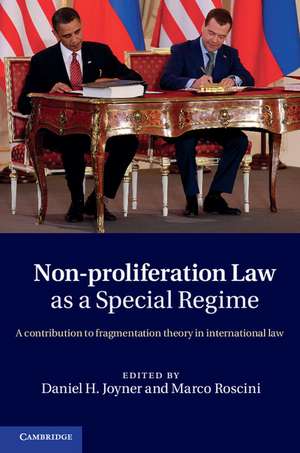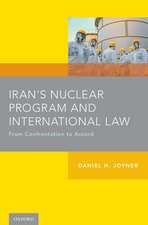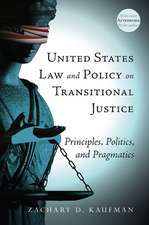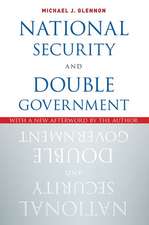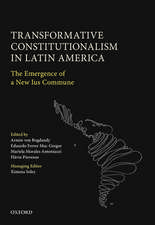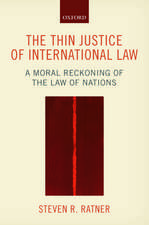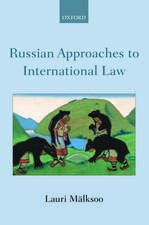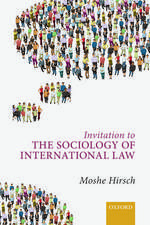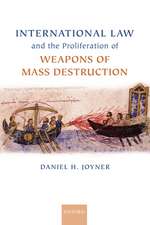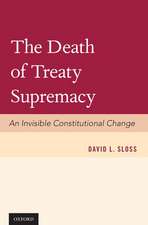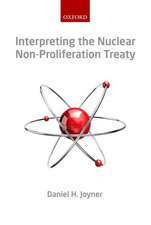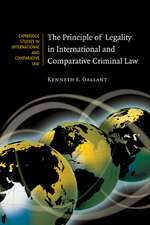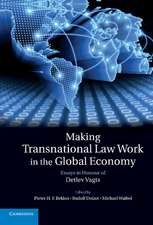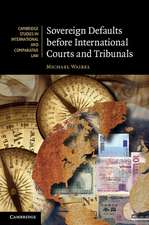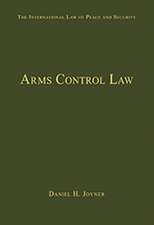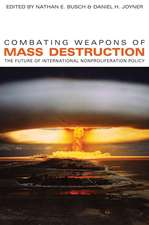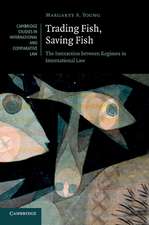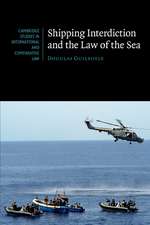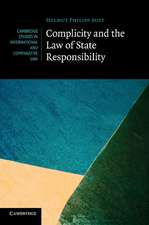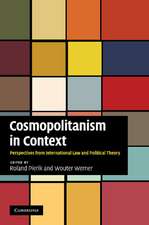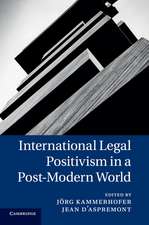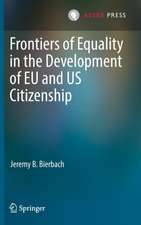Non-Proliferation Law as a Special Regime: A Contribution to Fragmentation Theory in International Law
Editat de Daniel H. Joyner, Marco Roscinien Limba Engleză Hardback – 19 sep 2012
Preț: 462.01 lei
Nou
Puncte Express: 693
Preț estimativ în valută:
88.40€ • 92.30$ • 73.17£
88.40€ • 92.30$ • 73.17£
Carte tipărită la comandă
Livrare economică 04-18 aprilie
Preluare comenzi: 021 569.72.76
Specificații
ISBN-13: 9781107009714
ISBN-10: 1107009715
Pagini: 300
Dimensiuni: 155 x 235 x 22 mm
Greutate: 0.57 kg
Ediția:New.
Editura: Cambridge University Press
Colecția Cambridge University Press
Locul publicării:New York, United States
ISBN-10: 1107009715
Pagini: 300
Dimensiuni: 155 x 235 x 22 mm
Greutate: 0.57 kg
Ediția:New.
Editura: Cambridge University Press
Colecția Cambridge University Press
Locul publicării:New York, United States
Cuprins
Introduction Daniel H. Joyner and Marco Roscini; Part I. The Law of Treaties: 1. Amendment and modification of non-proliferation treaties Malgosia Fitzmaurice and Panos Merkouris; 2. Provisional application of non-proliferation treaties Andrew Michie; 3. Interpretation of non-proliferation treaties Nigel White; 4. Violation of non-proliferation treaties and related verification treaties Eric Myjer and Jonathan Herbach; 5. Withdrawal from non-proliferation treaties Daniel H. Joyner and Marco Roscini; Part II. The Law of State Responsibility: 6. The 'injured state' in case of breach of a non-proliferation treaty and the legal consequences of such a breach Matthew Happold; 7. Non-proliferation law and countermeasures Sahib Sing; 8. State responsibility consequences of termination of or withdrawal from non-proliferation treaties Dieter Fleck; 9. Conclusions Daniel H. Joyner and Marco Roscini.
Recenzii
'Fragmentation of international law has become a favorite topic in the literature, all too often dealt with in the same worn, tired way … Against this background, it is a true pleasure to follow a group of experts both on non-proliferation law and the relevant international law around the Non-Proliferation Treaty on their analysis of the ways in which this treaty regime is 'special' without, however, essentially detaching itself from the general law in which it remains embedded. The book … sets an admirable example of how the ever-increasing number of specialized treaty regimes ought to be subjected to a profound dialogue between experts in the respective subject areas and international law generalists to the profit of both.' Bruno Simma, University of Michigan Law School and former Judge, International Court of Justice
'The contributing authors approach their respective chapters with measure and nuance, and the result is a most informative assessment of the characteristics of non-proliferation law as a subfield within an increasingly diverse international legal order. … This nuanced approach makes the book a welcome contribution to the fragmentation debate, which has come to focus on the manners in which different regimes evolve and interact, both with one another and with general international law … Non-Proliferation Law as a Special Regime is a very worthwhile read for both those with an interest in fragmentation theory and specialists in non-proliferation law.' Dirk Pulkowski, International and Comparative Law Quarterly
'The contributing authors approach their respective chapters with measure and nuance, and the result is a most informative assessment of the characteristics of non-proliferation law as a subfield within an increasingly diverse international legal order. … This nuanced approach makes the book a welcome contribution to the fragmentation debate, which has come to focus on the manners in which different regimes evolve and interact, both with one another and with general international law … Non-Proliferation Law as a Special Regime is a very worthwhile read for both those with an interest in fragmentation theory and specialists in non-proliferation law.' Dirk Pulkowski, International and Comparative Law Quarterly
Descriere
Do WMD non-proliferation treaties comprise a special regime in international law, with rules that differ from general international law?
